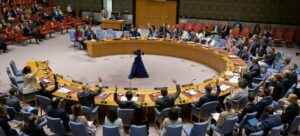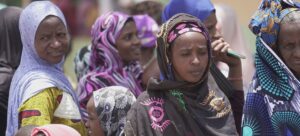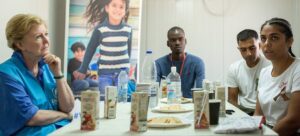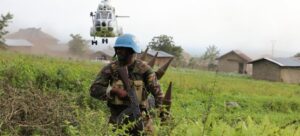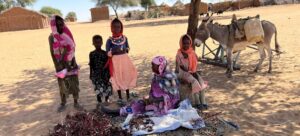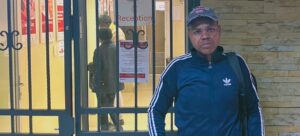In his message for the Day, UN chief António Guterres called human trafficking “a heinous violation of fundamental human rights and freedoms.” He said that this crime preys on vulnerability and thrives in times of conflict and instability, with more and more people targeted today.
“The majority of detected victims are women and children, many of whom suffer brutal violence, forced labour, and horrific sexual exploitation and abuse,” the Secretary-General said, noting that traffickers continue to operate with impunity and their crimes are receiving “not nearly enough attention.”
“We must strengthen law enforcement to bring criminals that commodify human beings to justice. And we must do more to help survivors rebuild their lives,” he added, calling for joint efforts to “build a world where no one can ever be bought, sold, or exploited.”
Step up counter-trafficking efforts
According to the 2022 Global Report on Trafficking in Persons, published by the UN Office on Drugs and Crime (UNODC), more than 50 per cent of cases of human trafficking are brought forward by victims or their families, with authorities struggling to detect and protect trafficking victims, which is a concerning new trend compared to previous years.
antonioguterres
The findings also show that women and girls, who account for around 60 percent of detected victims, are more likely to suffer sexual exploitation and higher levels of violence at the hands of their captors, while men and boys are being increasingly exploited for forced labour and criminal activities.
The campaign for the World Day Against Trafficking in Persons 2023, led by UNODC, aims to raise awareness of the current disturbing developments and trends, asking governments, law enforcement, public services and civil society to strengthen prevention, identify and support victims, and end impunity.
A crime in plain sight
Millions of victims of human trafficking are going unnoticed around the world, even though many walk among us every day – on street corners, at construction sites, or in factories and public venues.
The specificity of this crime is such that many victims cannot call for help, UNODC said. Having no legal status in a country where they come in search of a better life, victims become shackled by the false promises of traffickers.
“Human trafficking is a crime that hides not just in the shadows but in plain sight,” UNODC’s Executive Director Ghada Waly said in her video message for the Day.
She called for stepping up efforts to reach every trafficking victim, including by strengthening detection, investigating cases, and prosecuting the criminals involved. More action is also needed to identify, assist, and support survivors.
This can be achieved through consolidated work of all sectors of society – from healthcare, to social services to law enforcement, she said.
“The general public can help too, by reporting suspicious activities and services that may exploit trafficking victims, while the voice of civil society is crucial in raising awareness, as well as mobilizing and providing support to those in need,” the UNODC chief added.

